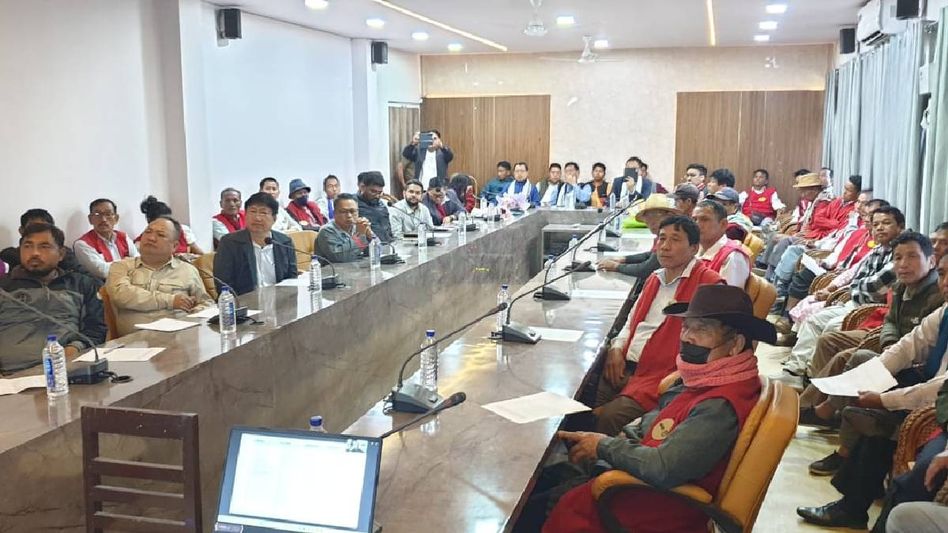Rhino reintroduction in Arunachal's D. Ering Wildlife Sanctuary gains momentum
A stakeholders' coordination meeting aimed at reintroducing rhinoceroses to the D. Ering Wildlife Sanctuary (DEWS) in East Siang District was convened at the Siang Guest House under the chairmanship of the Deputy Commissioner of Pasighat.

A stakeholders' coordination meeting aimed at reintroducing rhinoceroses to the D. Ering Wildlife Sanctuary (DEWS) in East Siang District was convened at the Siang Guest House under the chairmanship of the Deputy Commissioner of Pasighat. The meeting brought together key stakeholders, including local legislators, government officials, NGOs such as Aaranyak, Wildlife Trust of India (WTI), WWF, Eco-Development Committees, and the Community Surveillance and Monitoring Team of DEWS.
In her opening address, Kempy Ete, Divisional Forest Officer of DEWS, described the initiative as a groundbreaking step toward restoring the sanctuary’s lost biodiversity. She emphasized the importance of public support and cooperation in ensuring the success of the project. Ete outlined the reintroduction plan, appealing to stakeholders to join forces in protecting the reintroduced species.
Representatives from organizations like Aaranyak and WTI delivered detailed presentations on the logistical, ecological, and security challenges involved in reintroducing rhinos. The sanctuary, situated in the floodplain landscape of the Siang and Brahmaputra valleys, offers an ideal habitat for rhinos. However, the experts stressed the need for strong community involvement to ensure the safety and long-term viability of the species.
MLAs Ninong Ering (37th Pasighat West) and Tapi Darang (38th Pasighat East) urged local communities to actively participate in conservation efforts by curbing hunting activities in and around the sanctuary. “If everything proceeds as planned, rhinos will soon return to D. Ering WLS, reviving its glory from the 1950s and 1960s,” said Ering. Both leaders emphasized that the success of the initiative hinges on community support and highlighted the potential benefits of wildlife tourism for local economies.
The Deputy Commissioner of Pasighat issued a stern warning to village authorities, urging them to enforce strict anti-hunting regulations. He also reminded villagers that a successful rhino reintroduction could significantly boost local livelihoods through eco-tourism and job creation, including opportunities in a Rhino Protection Force.
The initiative has gained momentum following a state government announcement by Chief Minister Pema Khandu, who pledged to transform DEWS into a premier wildlife tourism destination. The reintroduction concept, developed by the Guwahati-based NGO Aaranyak, underscores the sanctuary’s untapped potential for ecological and economic benefits.
Mebo MLA Oken Tayeng, a key proponent of the initiative, has been instrumental in mobilizing government support. Tayeng, with his background in tourism, aims to transform the sanctuary into a hub for eco-tourism and sustainable development. By fostering community participation and creating job opportunities for local youth, Tayeng envisions DEWS as a model for conservation-driven economic empowerment.
The reintroduction plan is seen as a significant step toward reversing the neglect of DEWS and creating a sustainable coexistence between wildlife and local communities. The collaborative effort is poised to revive the sanctuary's ecological significance while fostering economic growth in the region.
Copyright©2025 Living Media India Limited. For reprint rights: Syndications Today









